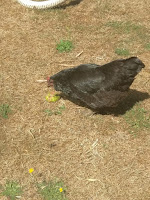I never shared publicly that it was always my intent for that fight on November 30, 2018 to be my last. I had decided it was in the best interests of me and my family to compete one last time and hang them up--win, lose, or draw.
I’m not sure why I never told anyone this. Maybe I was worried that my team would feel less invested in me. Maybe because I didn’t want that mindset going into the fight. Maybe I was just afraid to admit it.
I’ve still never once said out loud the words, “I’m retired”. I've only ever said that "I don't have any plans to compete." It is too much finality to admit.
A year ago, I had a great training camp going into my fight, and I lost. I made a single mistake against an excellent fighter and was punished for it.
I am not a gifted athlete, to say the least. I'm neither particularly strong, nor fast, nor flexible, nor coordinated. I don't have great muscle memory or kinesthetic learning. I've been a bookworm and a computer nerd all my life. Never played on a single school team in any sport.
All I have ever had in athletics is tenacity and discipline. I worked hard. I tried to learn everything that was relevant about strength and conditioning, nutrition, sleep, recovery, striking, wrestling, jiujitsu, and everything in the middle. The only reason I became halfway good at MMA was because I was obsessed. I refused to half-ass anything. I only ate the “right food” at the “right time”. I guarded my sleep with vigilance. I took ice baths in the middle of a Canadian winter. I scoured the internet to learn about mobility, conditioning, supplements, and how to throw better knees in the clinch. I had private sessions with boxing coaches, wrestling coaches, BJJ coaches, MMA coaches, S&C coaches, mobility coaches, hypnotherapists, sports psychologists, physiotherapists, and more.
My athletic inferiority drove me.
All I have ever had in athletics is tenacity and discipline. I worked hard. I tried to learn everything that was relevant about strength and conditioning, nutrition, sleep, recovery, striking, wrestling, jiujitsu, and everything in the middle. The only reason I became halfway good at MMA was because I was obsessed. I refused to half-ass anything. I only ate the “right food” at the “right time”. I guarded my sleep with vigilance. I took ice baths in the middle of a Canadian winter. I scoured the internet to learn about mobility, conditioning, supplements, and how to throw better knees in the clinch. I had private sessions with boxing coaches, wrestling coaches, BJJ coaches, MMA coaches, S&C coaches, mobility coaches, hypnotherapists, sports psychologists, physiotherapists, and more.
My athletic inferiority drove me.
Even though I started late (at age 30), MMA came along at the right time for me. I needed MMA as I was leaving the world of professional poker. Obsessing about optimal 3-bet ranges and river thresholds was replaced by head kicks, knee taps and triangle chokes. I needed to start from new and find inspiration.
Sometimes I had the size advantage; sometimes I didn't.
These days, of course, inspiration comes from my daughter, who turns 2 soon. Being a stay-at-home dad is a totally different grind from being a fighter or a poker player. Watching her little brain develop and discover the world around her is a completely different challenge. It might not offer the adrenaline rush of walking out to a cage fight or being all-in at a WSOP final table, but the reward is, hopefully, a toddler, a girl, a young woman that is proud to call me her dad.
I was never a star in this sport. Never the best in the world or the country. My best rank was #7 in Canada. The sport will not miss me; I was an insignificant footnote. But I can be proud of a lot of things. I fought some tough opponents. My last two opponents are a combined 5-0 since fighting me. I can be proud that I worked to give 11 opponents the best version of me possible on that day. I can be proud that whether I won or lost, I never quit.
I leave the sport without lasting physical injury. My brain is intact and my joints more or less work the way they’re supposed to. A lot of people in this game aren’t so lucky. I never took performance enhancing drugs. I don’t think that makes me better than anyone else, but since surveys indicate that 50-80% of fighters believe other fighters on them, I mention it.
Like with my poker career, one of the more awesome things about MMA was that I got to train and fight all over the world: Vancouver, Las Vegas, Hong Kong, Phuket, Manila, Bali, Brazil, and Korea are among just a few of the places I was lucky enough to be punched (or elbowed) in the face.
In the same way that I still appear at the WSOP ten years after my poker-playing prime, I don’t see myself leaving MMA entirely. I go to jiujitsu 2-3 times a week, and I enjoy being around fight camps. I like to think I have a mind for the game, and I would still love to be around the sport in some capacity or another. I’m not sure I was ever a technical enough fighter to be a coach, but I can offer help where I can. I would enjoy doing content around the sport. If there’s a promotion out there looking for commentary, I would do that in a heartbeat.
But I don’t think anything will ever change the fact that I will keep wishing I were the man in the arena instead of the man behind the scenes. I loved fighting. It was fucking awesome, and I miss it.




























